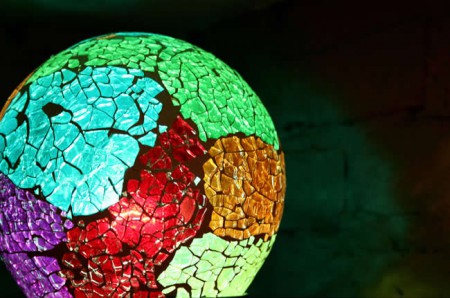The List has been released for the Bishop’s Commission to resolve unjust structures and polity in The United Methodist Church.
The Room Where It Happens
From the tribe of Issachar, there were 200 leaders of the tribe with their relatives. All these [folks] had understanding of the times, and knew what Israel ought to do. (1 Chronicles 12:32)
The list was released today of the folks selected to be on the Bishop’s Commission called “A Way Forward.” You can see previous coverage of this Commission here. Here’s the list.
American Jurisdictions: (65.6%)
- Jorge Acevedo – USA, Florida, elder, male
- Brian Adkins – USA, California, elder, male
- Tom Berlin – USA, Virginia, elder, male
- Matt Berryman – USA, Illinois, laity, male
- Bp. Grant Hagiya – USA, California, bishop, male
- Scott Johnson – USA, New York, laity, male
- Jessica Lagrone – USA, Kentucky, elder, female
- Thomas Lambrecht – USA, Texas, elder, male
- Myungrae Kim Lee – USA, New York, laity, female
- Julie Hager Love – USA, Kentucky, deacon, female
- Patricia Miller – USA, Indiana, laity, female
- Dave Nuckols – USA, Minnesota, laity, male
- Casey Langley Orr – USA, Texas, elder, female
- Bp. Gregory Palmer – USA, Ohio, bishop, male
- Donna Pritchard – USA, Oregon, elder, female
- Tom Salsgiver – USA, Pennsylvania, elder, male
- Bp. Robert Schnase – USA, Texas, bishop, male
- Jasmine Rose Smothers – USA, Georgia, elder, female
- Leah Taylor – USA, Texas, laity, female
- Bp. Deborah Wallace-Padgett – USA, Alabama, bishop, female
- Alice Williams – USA, Florida, laity, female
Central Conferences: (34.4%)
- Jacques Umembudi Akasa – Africa, Democratic Republic of Congo, laity, male
- Helen Cunanan – Philippines, elder, female
- David Field – Europe, Switzerland, laity, male
- Bp. Ciriaco Francisco – Philippines, bishop, male
- Aka Dago-Akribi Hortense – Africa, Côte d’Ivoire, laity, female
- Mazvita Machinga – Africa, Zimbabwe, laity, female
- Mande Guy Muyombo – Africa, Democratic Republic of Congo, elder, male
- Bp. Eben Nhiwatiwa – Africa, Zimbabwe, bishop, male
- Bp. Rosemarie Wenner – Europe, Germany, bishop, female
- Bp. John Wesley Yohanna – Africa, Nigeria, bishop, male
- Alfiado S. Zunguza – Africa, Mozambique, elder, male
Moderators:
- Bp. Sandra Steiner Ball – USA, West Virginia, bishop, female
- Bp. Kenneth Carter – USA, Florida, bishop, male
- Bp. David Yemba – Africa, Democratic Republic of Congo, bishop, male
Analysis
The list just came out and, though I’m a Methodist nerd, I don’t know everyone on the list. Other folks are doing analysis of demographics, etc. However, here’s some quick things to know.
- Bishops Lead but Don’t Vote. Although there will be 11 Bishops involved, I’m told they will not have vote. Their role will be to lead and speak with the Commission through these difficult conversations. This was shared by a Commission bishop to their clergy colleagues, so I’m assuming it is correct.
- Better percentage of clergy/laity vote. After you take the Bishops out of the count of voting members, the difference of clergy to laity is two people more on the clergy side (13:11). This is better than before and (partially) addresses the laity representation concerns, previously posted here.
- Problematic Inclusion of Caucus Group Employees. While caucus groups are part of United Methodism, it is problematic to include their employees as voting members of this Commission (Berryman, Lambrecht, Miller). Their jobs are contingent on their caucus group boards, which is quite a collision of the role to discern a path forward that their boards may not approve of. I don’t envy the employees’ situation, nor do I think this was a good idea, but too late now.
- Gender Diversity is decent. 12 men and 12 women are on the clergy and laity side, while the bishops are 6 men to 2 women (with 2 men and 1 woman on the moderators). Good job there, Bishops!
- Token Representation of LGBTQ persons. For a commission that was began solely to discuss how to continue to exclude LGBTQ persons from The UMC, it’s shameful to include only token representation of such persons on the Commission. It says the church will never actually negotiate with queer folks in the church, and chooses instead to legislate and talk about them. More later, but that’s a sizable frustration.
Other analysis? Make comments in the comment section below!
(Editor’s Note: added #5 per comments)
The Task Behind Us
I’m hopeful that the Commission takes the opportunity to make the church better for the 21st century and our global context. Even though the Commission has no regulatory or legislative power, and the Commission may work for two years and see their final recommendation may be completed voided by the General Conference (which has been done before), my hope is they follow the Spirit of General Conference and up the game of this Commission.
My reason for this hope is that we have a historical precedent.
In May 2016, I was invited to speak at a gathering of Methodists in Houston, Texas. The morning before, I had the pleasure of hearing Dr. Darryl Stephens (previous mention here) present a speech on his new book Methodist Morals. Dr. Stephens spoke about the creation of the Social Principles in 1972. In essence, the last major theological product of Methodism was the various commissions created in 1968: some were about eradicating the central jurisdiction, some about writing social principles, some about unification, some about the four sources of authority.
These commissions worked for four years and created a 300 page Discipline. In doing so, they eradicated an unjust system of the Central Jurisdiction, and gave full clergy rights for women in the EUB tradition in The new United Methodist Church.
They did it. They cracked the code for something new and made a more just church (at the time). My hope is that this Commission also takes it upon themselves to really elevate the task ahead.
The Task Before Us
We were capable of finding ways to make things work. It’s in our DNA. Will this same spirit rise up or will forces like the Wesleyan Covenant Association stand in the way and demand all-or-nothing results?
I think success hinges on the willingness of the Commission members to get to know one another.
I watched the PBS documentary on Hamilton, the broadway show, and in it, President Barack Obama (USA) speaks about what it takes to be in these high-profile rooms:
“I’m in most of the rooms. What you learn is that everybody who comes to the room to make decisions, they are bringing with them the constraints placed on them by their constituencies. And the only way anything gets done is if people recognize the truth of the person across the table. You have to be able to get in their heads and see through their eyes in order for things to happen.” Barack Obama
May it be with us, and may the whole of the commission recognizes the truth of one another.
Your turn
Please post any analysis or reflections on the Commission in the comments, or send me a Facebook Message with observations.
Prayers are for the Commission and for all of United Methodism going forward.
Thoughts?




Do we know if anyone on the commission is gay or lesbian?
Matt Berryman has identified two gay white men on the Commission. IDK if there are more LGBTQ folks.
Berryman is Executive Director of RMN and Nuckols is on the board of that organization. Interesting comment about staff members.
I find it suspicious that there were no persons of color and not one minority. It was simply a group of white men and women. Does it even occur to the heads of the UMC that not everyone is white….or straight? It is also pretty bad for the church that the number of laity VS elders or Bishops is overwhelming. I mistakenly have believed all my life the church is made up of the members, not the preachers.
There are people of color on the commission. Rev. Jasmine Smothers is one such person. But also the people from Africa…
By my estimates, there are six persons of color from American jurisdictions on the Commission.
Yeah, this a weird and identity-erasing assumption to make. It’s probably wise not to assume anything about anyone’s identity in the first hour of this being released.
I am from Upper New York Conference, and if the Scott Johnson from NY on the list is the one I know, he is African-American.
Why not include Eric Folkearth or Adam Hamilton?
Their decisions as to who to include are known, but who to exclude is not. So we’ll never know!
Maybe we will find out later that there are more LGBT folks on the commission; at this point, there does seem to be “enough”. I hoped for at least half.
Another point…I am not as optimistic as you are Jeremy. I hope you are right, and I am wrong…..
thanks for this analysis.
I agree with you, Jeremy, that the “way forward” will be for this crucible of humanity that represents us as UM’s will bond, that they will listen deeply to each other, and allow creative/Holy Spirit ideas to manifest. I say we saturate them with prayer – I’m praying that their conversations include prayer and laughter.
I’m also disappointed by the average age of participants and I’m fairly certain there is no one under the age of 35.
@Ben Weger, I don’t know how old Rev Smothers is for sure, but she will help represent a more youthful perspective.
@Ted Holland, you didn’t look very closely before denouncing the group’s lack of racial/ethnic diversity. Please look again.
The task before this group is difficult; I’ll be praying for them and for our church. Thanks for this & props on the Hamilton reference.
I fail to see how the make up of the commission really matters. They still have to come up with a proposal that will pass at GC.
Hi Jeremy,
Interesting stats. Thanks for sharing.
Also, I appreciate the swift “Hamilton” reference you threw in there.
Dennis
For me, The point of transformation is the general conference. This commission can become relational and they can find a way forward and they can present it. But it has to get through general conference and its a blockade.
it is shameful that the LGBTQIA representation comes from two white cisgender men.